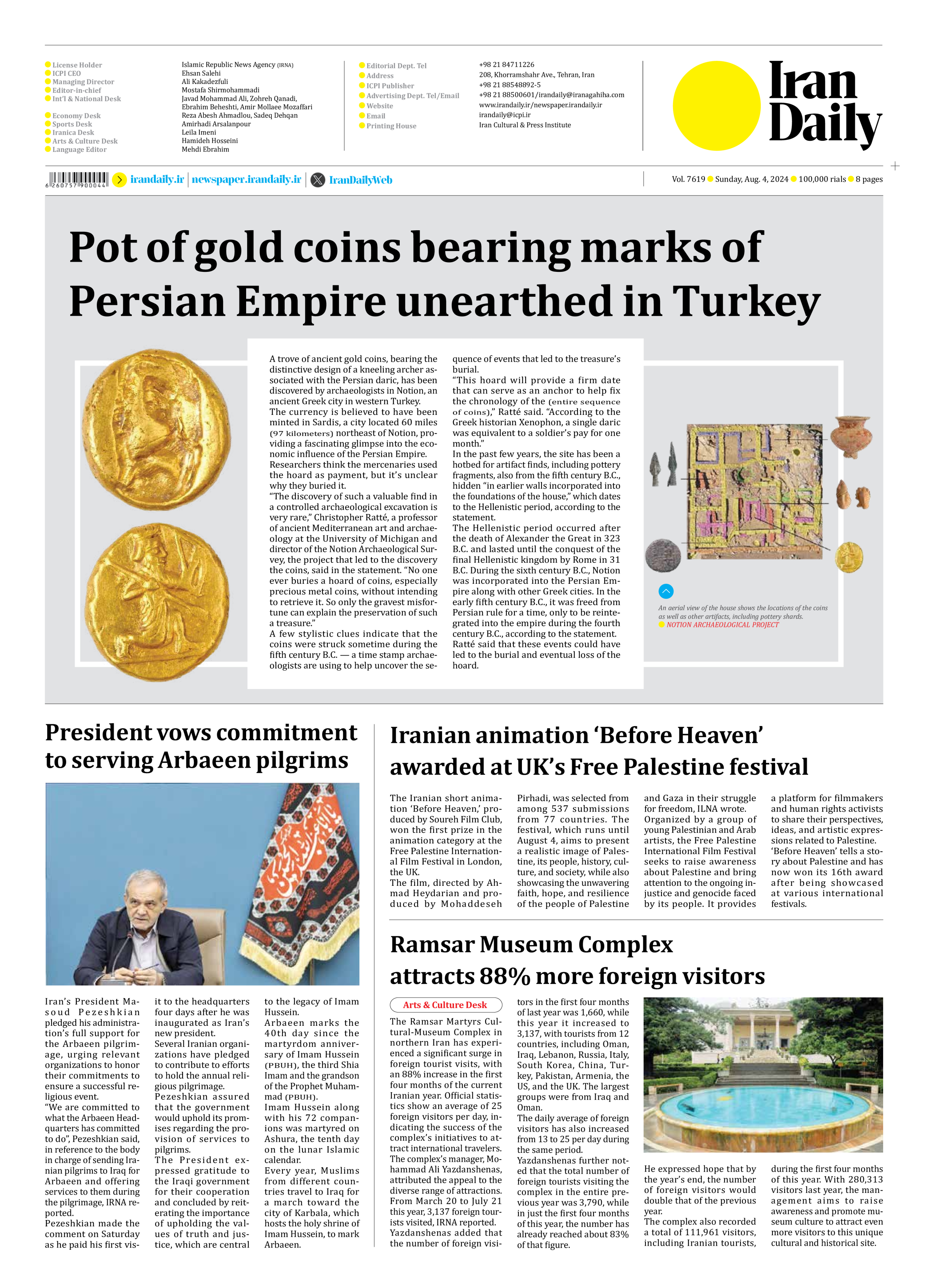
Copy in clipboard...
Pot of gold coins bearing marks of Persian Empire unearthed in Turkey
The currency is believed to have been minted in Sardis, a city located 60 miles (97 kilometers) northeast of Notion, providing a fascinating glimpse into the economic influence of the Persian Empire.
Researchers think the mercenaries used the hoard as payment, but it’s unclear why they buried it.
“The discovery of such a valuable find in a controlled archaeological excavation is very rare,” Christopher Ratté, a professor of ancient Mediterranean art and archaeology at the University of Michigan and director of the Notion Archaeological Survey, the project that led to the discovery the coins, said in the statement. “No one ever buries a hoard of coins, especially precious metal coins, without intending to retrieve it. So only the gravest misfortune can explain the preservation of such a treasure.”
A few stylistic clues indicate that the coins were struck sometime during the fifth century B.C. — a time stamp archaeologists are using to help uncover the sequence of events that led to the treasure’s burial.
“This hoard will provide a firm date that can serve as an anchor to help fix the chronology of the (entire sequence of coins),” Ratté said. “According to the Greek historian Xenophon, a single daric was equivalent to a soldier’s pay for one month.”
In the past few years, the site has been a hotbed for artifact finds, including pottery fragments, also from the fifth century B.C., hidden “in earlier walls incorporated into the foundations of the house,” which dates to the Hellenistic period, according to the statement.
The Hellenistic period occurred after the death of Alexander the Great in 323 B.C. and lasted until the conquest of the final Hellenistic kingdom by Rome in 31 B.C. During the sixth century B.C., Notion was incorporated into the Persian Empire along with other Greek cities. In the early fifth century B.C., it was freed from Persian rule for a time, only to be reintegrated into the empire during the fourth century B.C., according to the statement.
Ratté said that these events could have led to the burial and eventual loss of the hoard.







